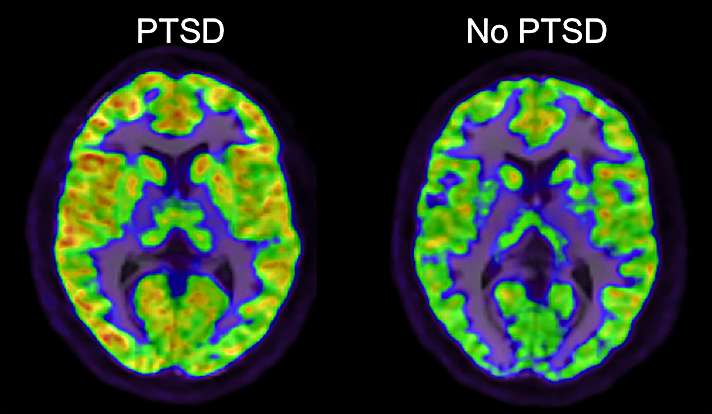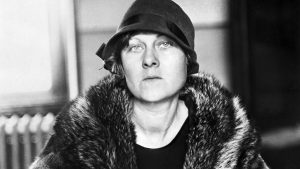Winner of the Fall 2018 StMU History Media Award for
Best Article in the Category of “Military History”
Best Article in the Category of “Science & Technology”
Charles Meyers, a Medical Officer, introduced the term “Shell Shock” to explain symptoms of Post Traumatic Stress Disorder (PTSD) displayed by military after combat in World War I (WWI). Soldiers often experienced symptoms including fatigue, tremor, confusion, nightmares, impaired sight, and impaired hearing. Meyers assumed that these symptoms were caused by the soldiers’ exposure to exploding shells, not necessarily the trauma they were witnessing or going through. In these years, symptoms of widespread PTSD were considered “weak” traits for soldiers by their colleagues and bosses. Even society as a whole started to view these symptoms negatively, which led to the destruction of their relationships after the Shell Shocked soldiers arrived home.1
Military gave Shell Shock victims no sympathy. When soldiers were dismissed from their duties, they were given labels such as “cowardice” or “emotionally weak.” These labels led to soldiers being targeted for abuse from their own side, as well as mock trials in which they were convicted. The pardons they received weren’t honorable, so they were often ashamed of their disorder, which led to more mental issues among the soldiers like depression, anxiety, and even suicide.2

New treatments flipped understandings of how World War I caused drastic changes in the behaviors of these men. Treatment for Shell Shocked victims before Arthur Hurst’s “miracle treatments” were very harsh, as they were often treated with Electroconvulsive Therapy, emotional deprivation, shaming, and solitary confinement. Some of the lesser treatments were hypnosis, massage, rest, and dietary treatments.3
Arthur Hurst primarily used occupational therapy to treat Shell Shocked patients, treating them as humanely and sympathetically as possible. This dignified care allowed for the increased numbers of “saved” soldiers, as they found ways to overcome the abuse and the labels given to them after their dishonorable discharges. Hurst’s treatments became iconic after the Newton Abbott’s Seale Hayne in Devon. Hurst’s approach allowed for 90% of Shell Shocked soldiers to be cured after only a single session.4

Modern day treatments, consist of therapy, as well as new medicines that aid in the control of the symptoms. According to Michael James, a pharmacist, there are Selective Serotonin Reuptake Inhibitors (SSRIs) that block the re-uptake of serotonin in the brain and help with sleep disorders, nightmares, and decreases intrusive thoughts. James also informed me that Serotonin Norepinephrine Reuptake Inhibitors (SNRIs) block the re-uptake of serotonin and norepinephrine in the brain which also decrease intrusive thoughts and provide aid for sleep disorders and nightmares.5
Hurst’s approach led to a change of heart and a consensus to the overall approach by society as a whole. Now, Veterans Affairs, also known as the VA, has a large program that provides aid to veterans with PTSD. However, this evolution of PTSD has not only been beneficial to veterans, but it has also allowed for a more diverse diagnosis of PTSD, in which it is more understood that other people, in addition to veterans, can also experience PTSD. PTSD can be caused from any sort of trauma including car accidents, violent crimes, and domestic violence. Individuals can even develop PTSD from having someone important abandon them as well. The DSM-5 has set a variety of symptoms for PTSD because just like any other disorder, it affects every individual differently. This document allows all individuals to gain access to the tools and help they need to recover from or live with PTSD.6

- Caroline Alexander, “The Shock of War,” Smithsonian Magazine, September 2010, https://www.smithsonianmag.com/history/the-shock-of-war-55376701/. ↵
- “Shell Shock,” BBC Inside Out, March 3, 2004, http://www.bbc.co.uk/insideout/extra/series-1/shell_shocked.shtml. ↵
- “Electroconvulsive Therapy: A History of Controversy, but Also of Help,” The Science Explorer, January 13, 2017, http://thescienceexplorer.com/brain-and-body/electroconvulsive-therapy-history-controversy-also-help; “Arthur Hurst: The Man Who Filmed Shell Shock,” BBC Radio 4, http://www.bbc.co.uk/programmes/articles/4VqPtrjsgcPKtgmYc2M5vXz/arthur-hurst-the-man-who-filmed-shell-shock. ↵
- “Arthur Hurst: The Man Who Filmed Shell Shock,” BBC Radio 4, http://www.bbc.co.uk/programmes/articles/4VqPtrjsgcPKtgmYc2M5vXz/arthur-hurst-the-man-who-filmed-shell-shock. ↵
- Email with Michael James, September 11, 2018. ↵
- Pete Walker, From Surviving to Thriving (Scotts Valley, CA: CreateSpace Independent Publishing Platform, 2013), 13-14. ↵



160 comments
Irene Astran
I appreciate that you shed light on this issue. I am even more grateful that I am reading it now on Veterans Day of all times. This is an epidemic that we should allot more resources towards research for. In light of the recent shooting by a Veteran, I think it is an issue worth investigating so we can minimize the causalities at the hands of those that have such traumatic experiences. This goes without saying, more investigation needs to be done on that case and resorting to mental health may not be the full response.
Martina Rodriguez
I loved the article title, it’s what captured my attention in the first place. I remember how recently it was that society stopped considering PTSD symptoms “weak” and it saddens me to think of how long it took for us to get there. I loved reading how far diagnosis and treatments have come for PTSD and its heartening to know that we still have long ways to come as far as better aiding those effected.
Andrea Cabrera
It is heartbreaking how in early year symptoms of PTSD were considered weak traits for soldiers by their peers. Thanks to Hurst’s research society had a change in perspective of how they viewed PTSD. As United States’ citizens, we owe respect to the people that have fought for us during any given time. I’m glad Veterans Affairs a program that gives aid to veterans with PTSD. It is important to always have our mental stability checked as much as our physical health.
Luis Magana
Our heroes arent cowards is a short sentence that really sticks with you and makes you think. We need more genuine people in this world like Hurst in order to help people pass any obstacles that are in their path. Nothing will ever be accomplished if you give up and are negative. Hurst is really dedicated and is willing to put time and effort in order to accomplish what he wants. Society shouldn’t judge people with PTSD because they don’t know their story, they should be a little more understanding. It is a great and very informative article.
Kristy Feather
it is absolutely horribly to think that good men would go over seas and see horrible and scaring things, just to come back and be treated even worse. You would think that since these men had been tortured enough by their own minds that the world would have just let them try to live, but instead we brought them back and tortured them more in an attempt to ty and rewire the memories in their mind.
Diego Aguilera
I know plenty of people with PTSD and how much it sucks and they wish they didn’t have it. I wish there wasn’t PTSD to begin with. My best friends mom has PTSD and to see what it does and how it affects her just at the movies where she has to sit in the back because the front or anyone behind her makes her nervous.
Esperanza Rojas
This article had a very good and intriguing tone from it. It was well-written and very informative. About the topic, I never knew too much about Shell Shock and how the military dealt with it. It is sad how ignorant of them it was to not investigate the matter and emotionally abuse them with labels. Thankfully, Hurst’s involvement helped many of those that suffered PTSD.
Alejandra Chavez
I’ve always heard of the past dishonorable discharges due to this but I had never gotten a firm grasp as to the significance of it. It’s disgusting, quite truly, to see how ignorant people can be about mental illness, not understanding that the brain is a major organ and can malfunction in the same extents that a heart can. Thank goodness for the Major. This was a very intriguing article.
Micaela Cruz
This article was an intriguing read and overall very informative. The work done by Arthur Hurst was extremely beneficial to the veterans then and now; his dedication to genuinely helping these shell-shocked soldiers is inspiring. It is unfortunate though to read about how those in the military as well as society as a whole saw these soldiers as being weak, and I find it also selfish how society judged them so harshly despite not fully knowing what those soldiers saw or endured.
Daniela Cardona
It’s really sad to think about those who gave so much to our country, and experienced so many difficult things had backs turned against them and names yelled at them. I am so glad that people like Hurst took the time to be gentle and treat them with the respect they deserved. It is because of professionals like him that so many of those affected early were healed and why more research in to actual causes were conducted.